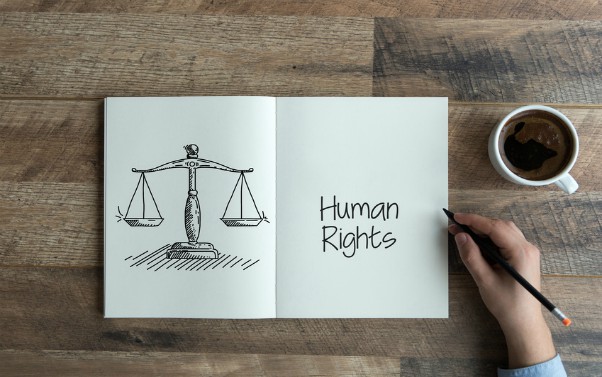
There is evidence that “unacceptable and inappropriate” do not attempt cardiopulmonary resuscitation orders (DNACPRs) were made at the start of the pandemic and some may still be in place, the Care Quality Commission (CQC) has warned.
In an interim report from a government-commissioned review, the watchdog said it saw an increase in complaints about DNACPRs during the first wave, receiving 40 complaints between March and September, compared to just nine similar concerns in the previous six months.
These concerned making blanket orders for groups of people such as residents of a care home, rather than on an assessment of each person’s individual circumstances, and about making decisions without involving the person concerned or their family.
About DNACPR orders
A DNACPR decision is an instruction not to attempt cardiopulmonary resuscitation. DNACPRs are designed to protect people from unnecessary suffering by receiving CPR that they don’t want, that won’t work or where the harm outweighs the benefits. Every decision about CPR must be made on the basis of a careful assessment of each individual’s situation and should never be dictated by ‘blanket’ policies.
Wherever possible, the decision must be made in consultation with the person. If the person cannot be involved because they are not able to make relevant decisions for themselves, a best interests decision that involves those close to them or their representatives and informed by the person’s wishes, feelings, beliefs and values must be undertaken.
Source: Review of Do Not Attempt Cardiopulmonary Resuscitation decisions during the COVID-19 pandemic (Care Quality Commission, 2020)
Families told the CQC they were unaware that a loved-one had an order until they became unwell, while the regulator was also told of routine care not being provided, such as an ambulance or doctor not being called by care homes, because of a DNACPR on a person’s file. Decisions about DNACPR orders were also conflated with whether a person should be admitted to hospital or receive Covid-19
It found confusing guidance – in the context of health services being overwhelmed and the message to protect the NHS – may have led to DNACPR orders, and said it understood that in some areas protocols were set up that increased barriers to hospital treatment for care home residents and those in the community.
The regulator added that, in some cases, inappropriate DNACPRs may still be in place, and said that it expected all care providers to “assure themselves” that any DNACPR decisions had been made appropriately, in discussion with the person and in line with legal requirements and best practice.
Blanket approach ‘unacceptable’
Speaking about the findings, Rosie Benneyworth, chief inspector of primary medical services and integrated care at the CQC ,said there was a very real concern that decisions were made which not only overlooked the wishes of the people they affected, but may have been made without their knowledge or consent.
“It is unacceptable for clinical decisions – decisions which could dictate whether someone’s loved one gets the right care when they need it most – to be applied in a blanket approach to any group of people,” Benneyworth said.
Meanwhile, Sanchita Hosali, director of the British Institute of Human Rights (BIHR), said BIHR was not convinced that discriminatory and disproportionate DNACPR decisions were no longer happening.
“Many human rights are at play here, particularly the right to life, the right to respect for private life, including choice and involvement and, importantly, the right to non-discrimination,” she said.
“Medical decisions must still be lawful decisions. This also means complying with the Human Rights Act; the legal duty to respect and protect the rights it contains apply to all public authorities, including the NHS and the decisions made in those bodies every day.”
Intermittent CQC reviews ‘clearly not a strategy’
When asked what must be done to stop the inappropriate use of DNACPRs, Chris Hatton, professor of social care at Manchester Metropolitan University, said occasional high-level instructions from DHSC and intermittent CQC reviews were “clearly not a strategy”.
“Properly tackling this requires an ongoing programme of rigorous monitoring with regular reporting, sanctions for the illegal application of DNCPRs, and a clear operational plan that ensures disabled people have their rights routinely respected,” Hatton said.
The CQC is now conducting further research across seven clinical commissioning groups to understand the extent to which DNACPRs may have been used inappropriately during the first wave of the pandemic.
Its final report is due to be published in early 2021.



 Family help: one local authority’s experience of the model
Family help: one local authority’s experience of the model  ‘I spent the first three months listening’: how supportive leadership can transform children’s services
‘I spent the first three months listening’: how supportive leadership can transform children’s services  How senior leaders in one authority maintain a culture of excellence
How senior leaders in one authority maintain a culture of excellence  How staff support ensures fantastic outcomes for children and families
How staff support ensures fantastic outcomes for children and families  Workforce Insights – showcasing a selection of the sector’s top recruiters
Workforce Insights – showcasing a selection of the sector’s top recruiters 

 Facebook
Facebook X
X LinkedIn
LinkedIn Instagram
Instagram
I raised this with my LA in 2012 having undertaken a DOLS assessment at a nursing home. All of the residents had demantia and all had a DNAR on file from the GP. The fields for assessing whether the person had capacity, their views and those of family and friends were blank on all of them. I said at the time that this practice was not likely to be an isolated incident and homes needed to be careful that these forms were not filled in en masse as an administrative exercise. My brother in law with downs syndrome would routinely get one during any hospital visit despite having a loving family life and full and stimulating daily occupation – none of his family were consulted about that either. I suspect it will take (another) big legal case or two to get the message through.